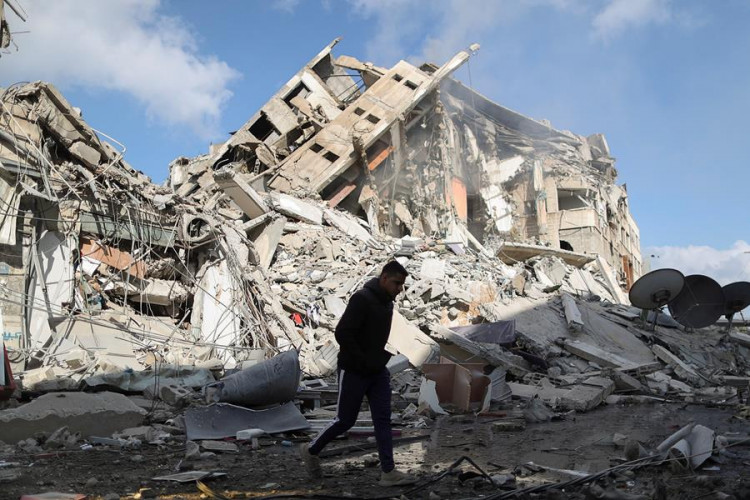The Hamas organization announced on the evening of February 6th that, after consultations within its leadership and communications with other resistance factions, it had responded to a framework agreement related to peace talks with Israel, presented by Qatar and Egypt. Both Qatar and the United States confirmed receiving a "positive response" from Hamas regarding the ceasefire agreement framework in Gaza.
During a visit to Qatar, U.S. Secretary of State Antony Blinken engaged in discussions with Qatari Prime Minister and Foreign Minister Mohammed bin Abdulrahman Al-Thani, primarily focusing on the Israel-Palestine situation. In a press conference following their meeting, both officials confirmed that Qatar had received a positive response from Hamas concerning a ceasefire in the Gaza Strip and the release of detainees. Al-Thani expressed optimism about the prospect of reaching an agreement between the conflicting parties, though he did not provide further details. Blinken mentioned that he would discuss Hamas's response with Israeli officials during his visit to Israel on February 7th.
An Israeli official, quoted by the Israeli Public Broadcasting Corporation on the evening of February 6, stated that Israel would not accept any conditions from Hamas to halt military actions. The official also described Hamas's response to the proposal for exchanging detainees as "negative."
Furthermore, the Israeli Public Broadcasting Corporation reported in the afternoon of February 6th, citing senior military sources, that Israel had finalized plans for military operations in the Gaza Strip, expected to continue until 2025. The military source emphasized that Israel's military actions in the region would not conclude in the short term.
Regional Tensions and Global Implications
Oil prices experienced a dip and then a rise on Tuesday, with WTI crude oil futures for March closing up $0.53, or 0.73%, at $73.31 per barrel, and Brent crude oil futures for April ending up $0.60, or 0.77%, at $78.59 per barrel.
There were also developments from the Houthi rebels in Yemen. According to CCTV News, Houthi leader Abdul-Malik al-Houthi stated that if Israel did not cease its attacks on Gaza, the Houthis would "escalate actions." Since the outbreak of a new round of conflict between Israel and Palestine in October of the previous year, the Houthis have launched multiple drone and missile attacks on targets in the Red Sea. The United States and the United Kingdom have conducted airstrikes against Houthi targets since January 12th of this year.
Additionally, Greek media, citing the British maritime trade operations agency, reported that a Greek cargo ship was attacked while sailing in the Red Sea on February 6th, resulting in minor damage to the vessel without causing injuries to the crew. The attacked vessel, the "Stena Impero," is owned by a Greek shipowner, flies the flag of the Marshall Islands, and was en route from the United States to India.
With the ongoing situation in the Red Sea, hundreds of ships are avoiding the area, choosing instead to navigate thousands of miles around Africa. Industry insiders have mixed views on shipping insurance premiums related to the situation in the Red Sea. Chinese merchant ships passing through the region are reportedly receiving substantial insurance discounts. Some vessels associated with China are paying as low as 0.35% of the hull and machinery value for transit insurance, compared to the typical range of 0.5%-0.75% for most ships, though there can be significant variations. For a ship valued at $100 million, such discounts could amount to savings of $150,000 to $400,000, providing Chinese shipowners with another advantage in using this key shipping route between Asia and Europe.




